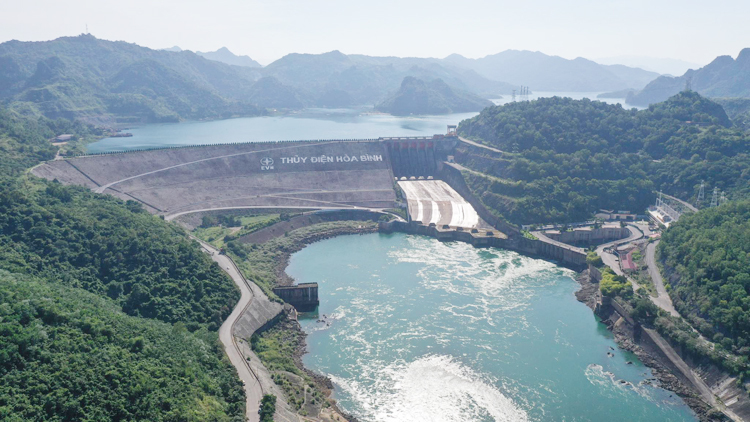Vietnam: What does college-level water resource engineering mean?
Recently, the Ministry of Labour, Invalids and Social Affairs of Vietnam promulgated Circular 56/2018/TT-BLDTBXH stipulating the minimum knowledge and competency requirements for graduates at intermediate and college levels for disciplines and professions related to transport services, environment, and security.

Vietnam: What does college-level water resource engineering mean? (illustrative photo)
Under Circular 56/2018/TT-BLDTBXH, college-level water resource engineering in Vietnam is a discipline or profession that involves the following tasks: planning, surveying, designing, constructing, and managing medium and small hydraulic projects; monitoring and analyzing water resources; developing plans, methods, administrative procedures, and professional activities in water resources; collecting data and information, assessing current conditions, calculating exploitation needs, and using water resources; receiving samples, returning analysis results, and storing analysis outcomes; forecasting water resources; planning water resources; inspecting and supervising the collection, preservation, and transportation of water samples; collaborating in research, developing, and managing databases; applying science and technology to the collection, processing, quality control, storage, preservation, and exploitation of such data; providing data and information for research, governmental management, and performing tasks related to planning and investigating water resources, meeting the requirements of level 5 in the Vietnamese Qualifications Framework. The minimum knowledge volume is 1,800 hours (equivalent to 76 credits).
Additionally, students pursuing college-level water resource engineering in Vietnam must acquire the following knowledge upon graduation:
- Be able to explain the natural laws of water, its spatial and temporal distribution;
- Be able to present basic knowledge of water resources warnings and forecasts;
- Be able to present the basic contents of several legal documents and regulations related to the construction, management, exploitation, and protection of water resources exploitation projects;
- Be able to present basic principles and foundational technical knowledge (Construction Materials, Electrical Engineering, Surveying, Hydraulics, Hydrology);
- Be able to present basic knowledge on measuring and monitoring water resources exploitation projects;
- Be able to present basic knowledge on politics, culture, society, law, national defense and security, and physical education as per regulations.
More details may be found in Circular 56/2018/TT-BLDTBXH effective from February 10, 2019.
Ty Na
- Number of deputy directors of departments in Vietnam in accordance with Decree 45/2025/ND-CP
- Cases ineligible for pardon in Vietnam in 2025
- Decree 50/2025 amending Decree 151/2017 on the management of public assets in Vietnam
- Circular 07/2025 amending Circular 02/2022 on the Law on Environmental Protection in Vietnam
- Adjustment to the organizational structure of the Ministry of Health of Vietnam: Certain agencies are no longer listed in the organizational structure
- Vietnam aims to welcome 22-23 million international tourists in Vietnam in 2025
-

- Number of deputy directors of departments in Vietnam ...
- 15:04, 05/03/2025
-

- Cases ineligible for pardon in Vietnam in 2025
- 14:43, 05/03/2025
-

- Decree 50/2025 amending Decree 151/2017 on the ...
- 12:00, 05/03/2025
-

- Circular 07/2025 amending Circular 02/2022 on ...
- 11:30, 05/03/2025
-

- Adjustment to the organizational structure of ...
- 10:34, 05/03/2025
-

- Notable new policies of Vietnam effective as of ...
- 16:26, 11/04/2025
-
.Medium.png)
- Notable documents of Vietnam in the previous week ...
- 16:21, 11/04/2025
-
.Medium.png)
- Notable documents of Vietnam in the previous week ...
- 16:11, 02/04/2025
-
.Medium.png)
- Notable new policies of Vietnam to be effective ...
- 16:04, 02/04/2025
-
.Medium.png)
- Notable new policies of Vietnam effective from ...
- 14:51, 21/03/2025
 Article table of contents
Article table of contents
